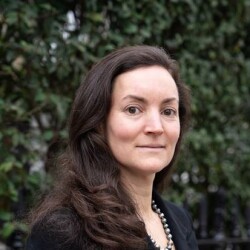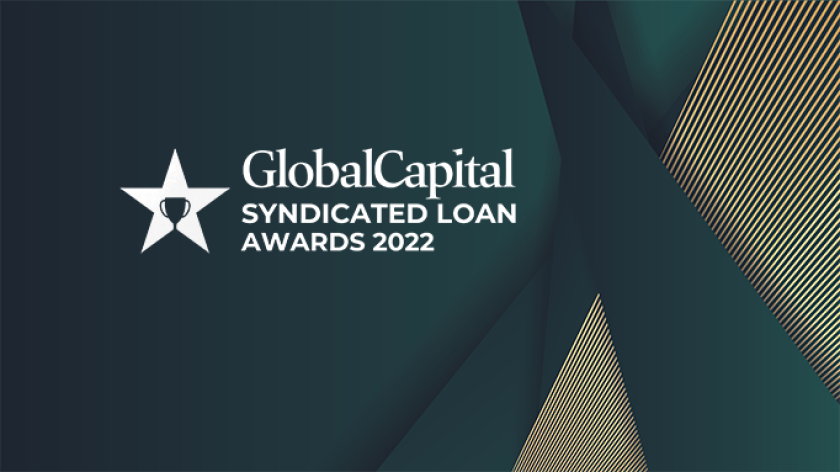A long time pioneer in the field of green and sustainable finance, Crédit Agricole CIB remains at the cutting-edge of ESG. The bank combines dominance in deal flow with a commitment to deepening its expertise and adding new elements to its advisory services. Recognising the firm’s primacy, the market has once again voted the bank Best Arranger of Green and ESG-Linked Loans and Best Arranger of French Loans
Crédit Agricole CIB was one of the first international firms to set up a sustainable banking team back in 2009, and has never stopped working to maintain its edge. This includes building a unique network of sustainability banking coordinators, and most recently creating a climate and ESG expertise team dedicated to ESG advisory services.
The deal went wide in terms of distribution and was really emblematic of what Crédit Agricole CIB offers in energy transition and green finance

The bank’s unwavering dedication leaves it consistently at the top of multiple league tables. Crédit Agricole CIB finished number one in Dealogic’s and Refinitiv’s 2022 rankings for coordinators and structuring agents on global sustainability-linked and green loans. In EMEA, the bank topped the Dealogic league table for sustainability-linked deal volumes by bookrunner.
Among the standout green deals in 2022 was a £2.1bn package of loans to fund the acquisition of 50% of Hornsea 2 - the largest offshore wind farm in the world. That transaction - voted GlobalCapital’s Renewables Loan of the Year - was notable for its size, structure and success. In addition to acting as a MLA, Crédit Agricole CIB served multiple roles including sellside M&A advisor, debt advisor and hedging bank.
“The deal went wide in terms of distribution and was really emblematic of what Crédit Agricole CIB offers in energy transition and green finance,” says Koo Cho, head of project and rail distribution at Crédit Agricole CIB.
In a constantly evolving market, the firm's focus on adaptation and improvement has given it first-mover advantage time and time again. Cho points to the recent increase of dedicated resources within Crédit Agricole CIB’s Sustainable Banking team in advisory services for borrowers as an example. “This service involves not only ESG rating strategy but also wider ESG communication topics, which have become extremely important,” she says.
Lucie Campos Caresmel, head of EMEA corporate, commodities and export finance distribution, highlights the sense of ESG ownership across the whole banking group. “This runs all the way across origination, structuring, syndicate, sales, legal and credit teams - ESG has been integrated and embedded throughout the organisation,” she says.
ESG and the energy transition are also at the heart of the Crédit Agricole Group’s corporate strategy. “You see this in the group’s Net Zero commitments and in our approach to clients,” says Campos Caresmel.
The targets have driven us to further deepen our existing sectoral expertise, which not only helps the group to contribute to collective neutrality ambitions but really adds value for borrowers and helps us guide them across the sustainable finance spectrum

Crédit Agricole S.A. has published intermediary targets on its journey to carbon neutrality, which include sharp emission reductions for customers in key sectors including oil & gas, power, automotive, commercial real estate and cement. Targets for industries including shipping, aviation, steel, residential real estate and agriculture are expected to be published next.
“The targets have driven us to further deepen our existing sectoral expertise, which not only helps the group to contribute to collective neutrality ambitions but really adds value for borrowers and helps us guide them across the sustainable finance spectrum,” says Campos Caresmel. “We’re enlarging our customer base and on-boarding new energy clients to better reflect the sector’s growing diversity.”
“These ambitious goals also influence how the bank supports its clients in their own energy transition” says Campos Caresmel. Integrity means placing sustainability alongside profitability.
“We have declined deals with clients because it doesn’t fit with our strategy,” says Cho, noting that Crédit Agricole CIB has led the way in pushing for deeper and more effective ESG outcomes. “The depth and quality of sustainability considerations across the market has increased over the last year,” she says. “There’s more effort to really quantify the ESG impact of a financial transaction, which is driven greatly by disclosure requirements.”
Crédit Agricole CIB also celebrates another year defending its title as the Best Arranger of French Loans. As with its approach to ESG, the bank has no intention of resting on its laurels. The firm works hard to maintain its broad coverage of the French market working with companies in all sectors.
“It’s a very rich, comprehensive and thorough approach to the market,” says Campos Caresmel. “We are supporting clients of all shapes and sizes, including developing our new energy customer base. We recognize we are an important player in the French market and are committed to help finance the real economy.”

